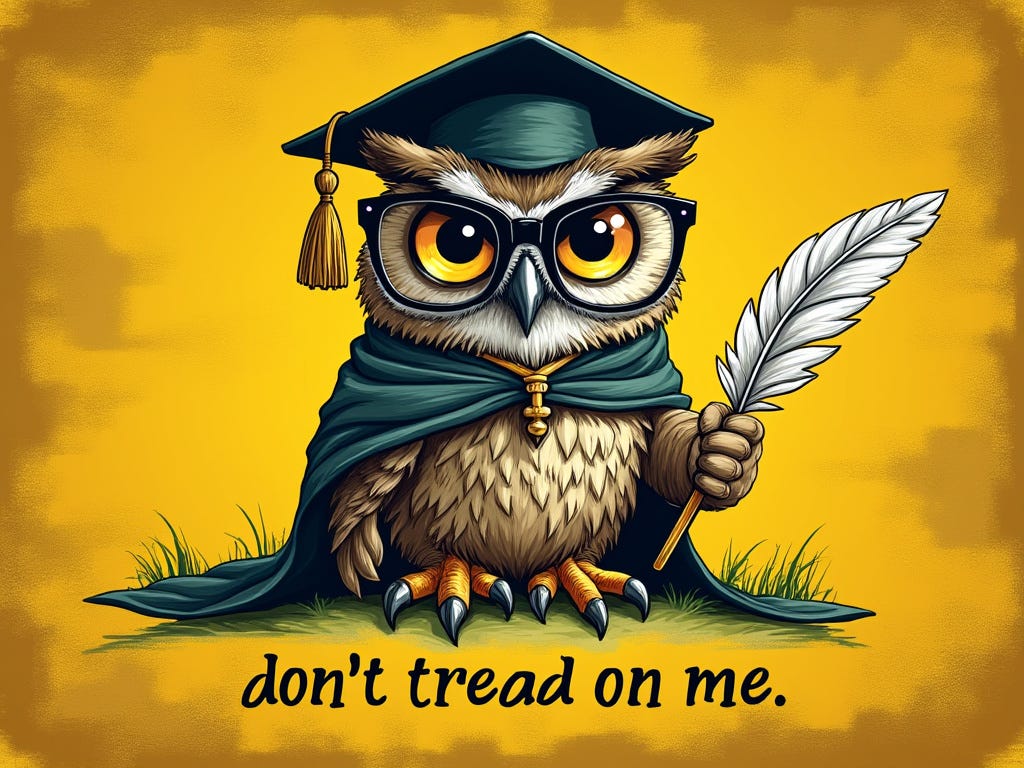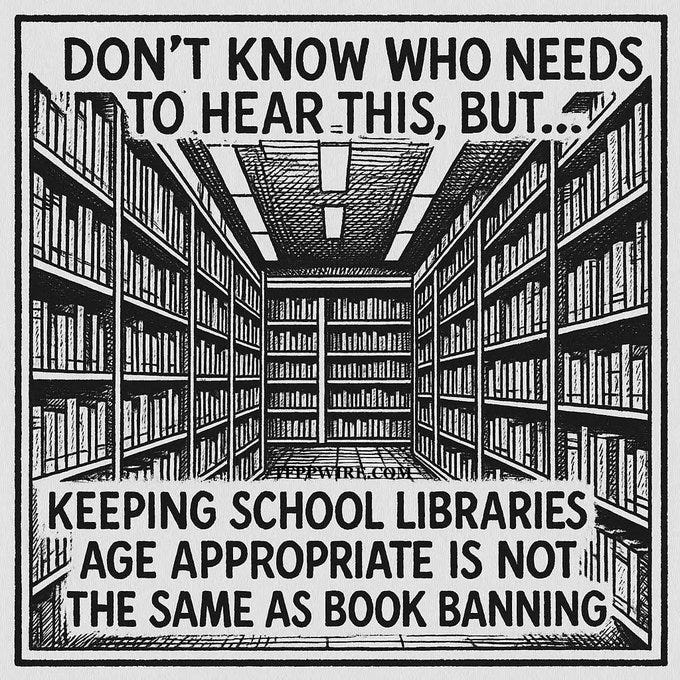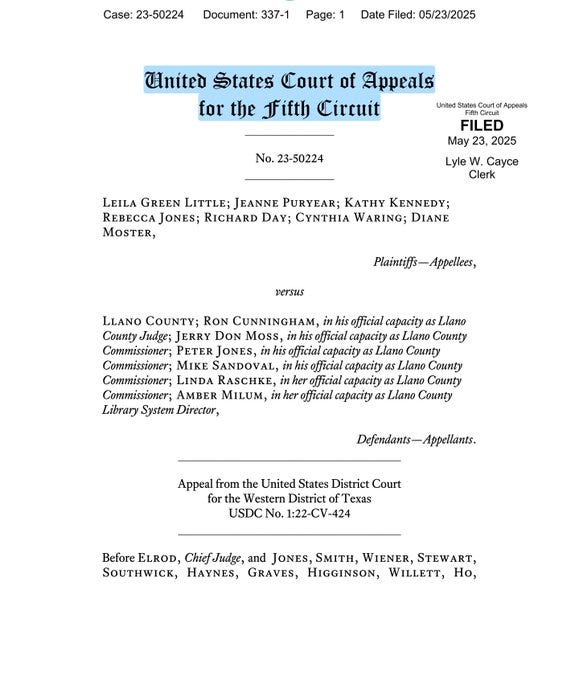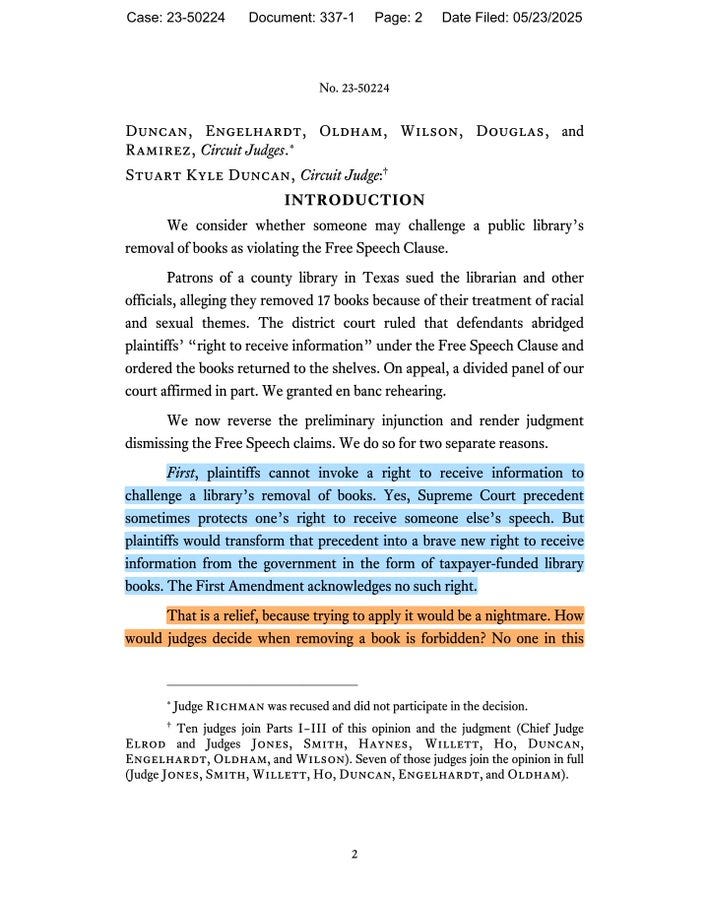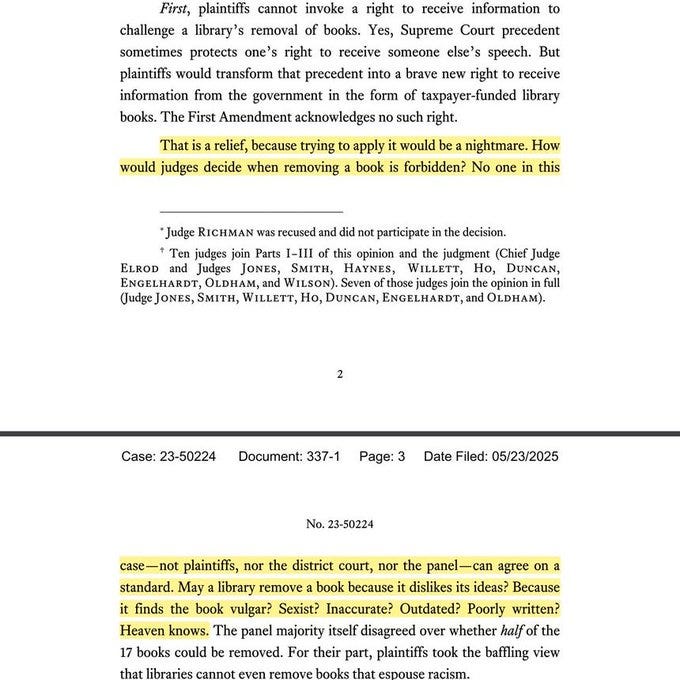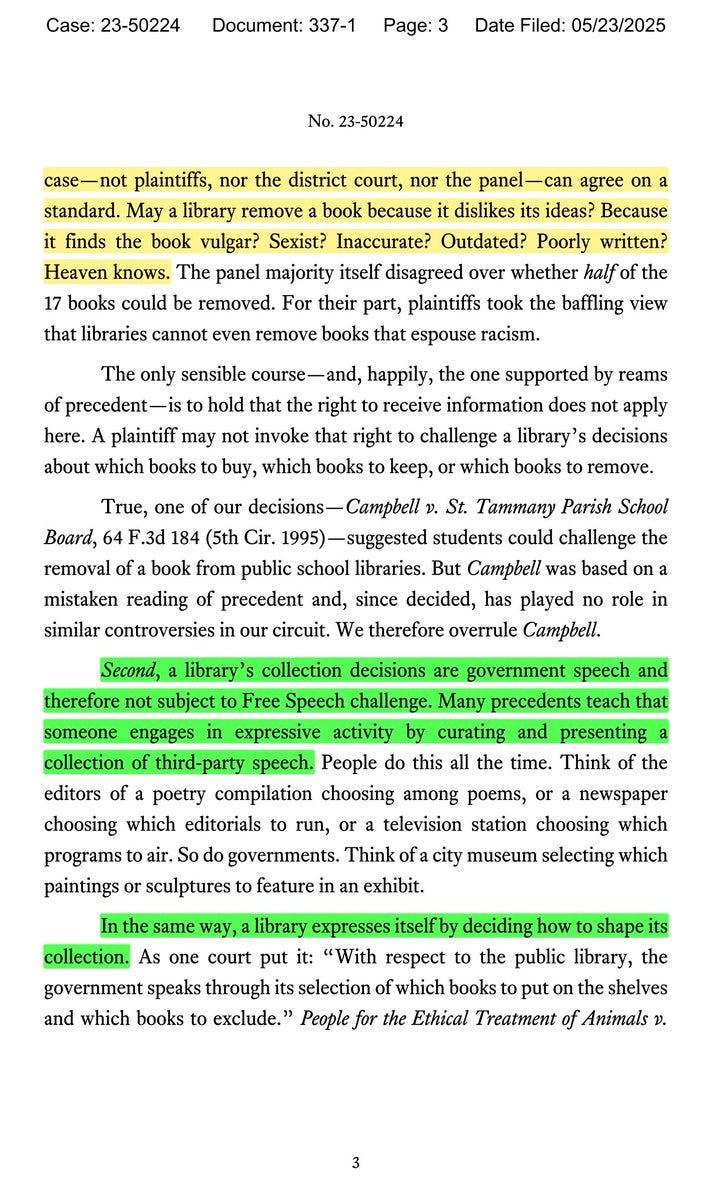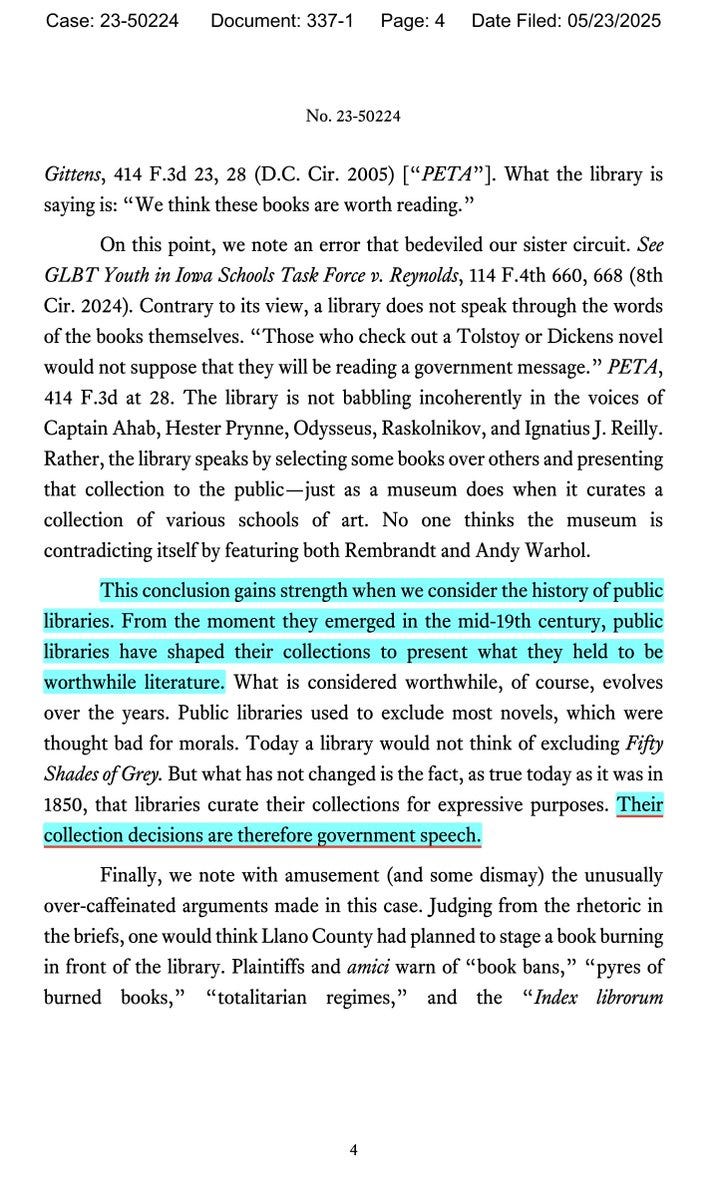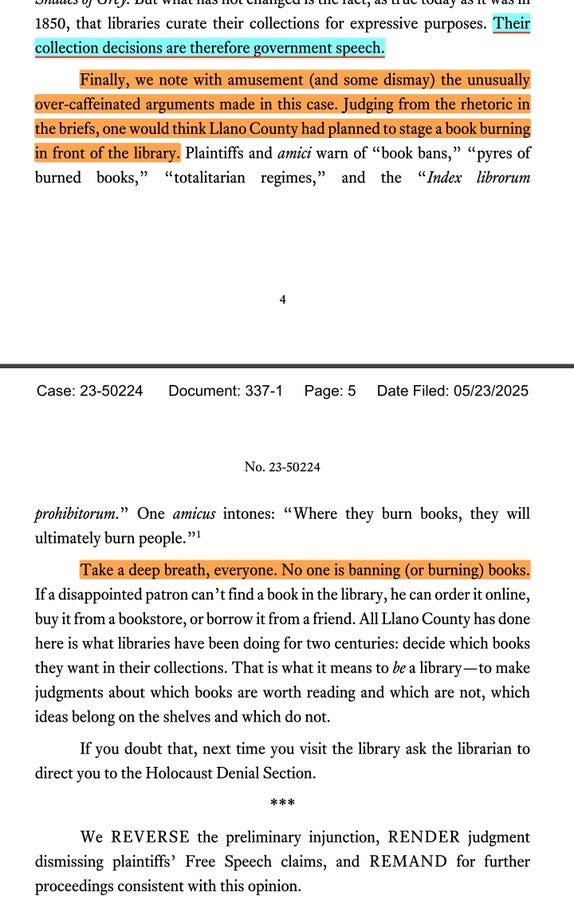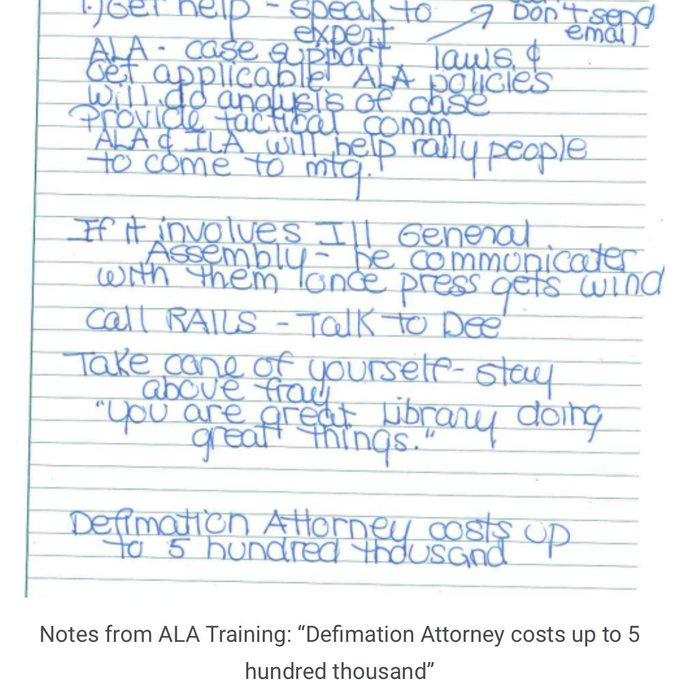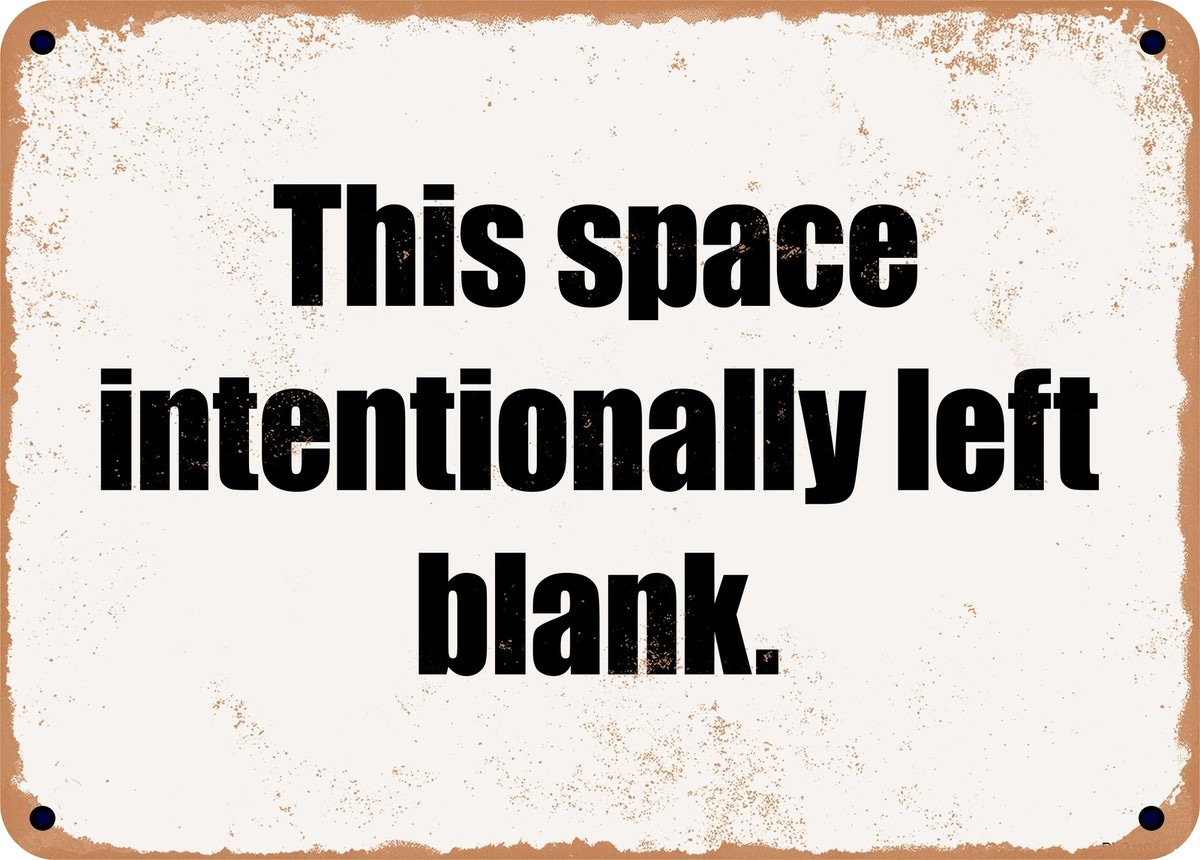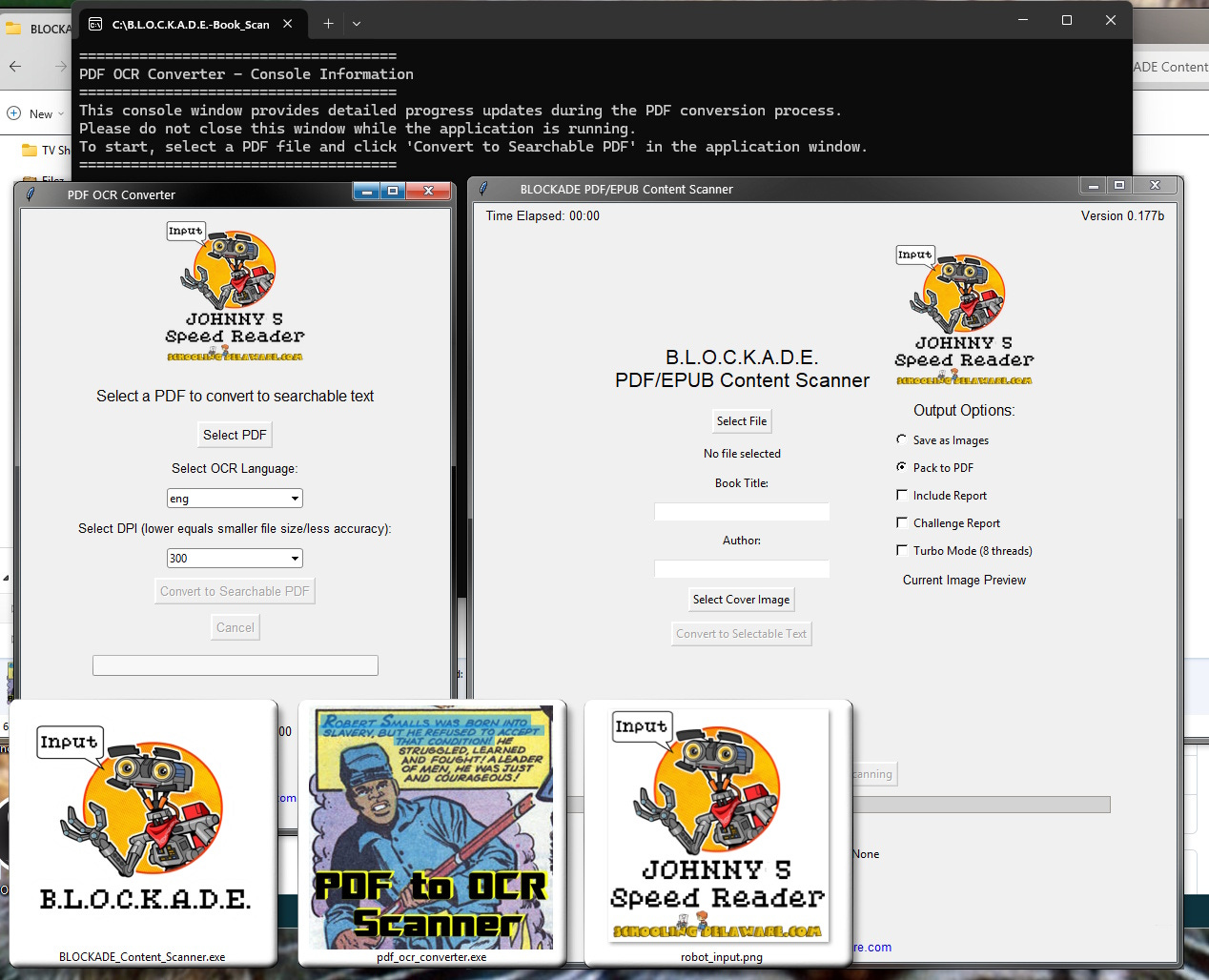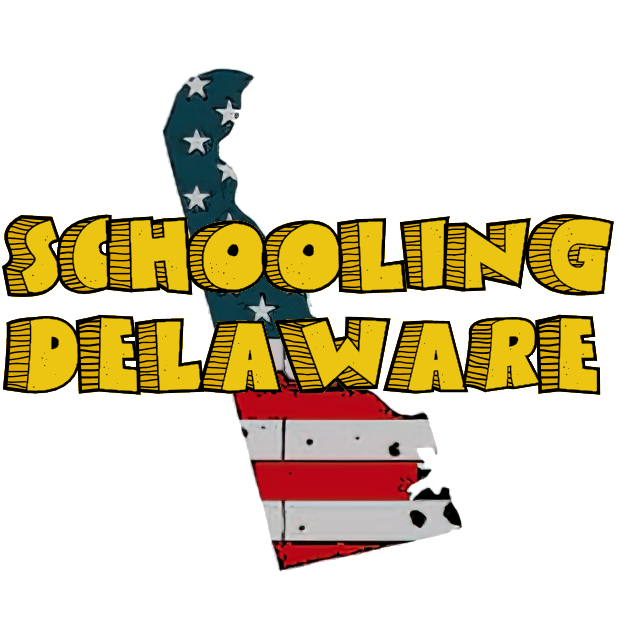Library Books are NOT protected by free speech, they are, in fact, government speech!
"Take a deep breath, everyone. No one is banning (or burning) books.”
Thomas Sowell warned us decades ago through various essays & his 1992 book “Inside American Education”: our schools are more about propaganda than education. Today, it’s clear he was right. Those books in your kids’ school library? They’re not free speech—they’re government speech, hand-picked to push an agenda. It’s time for parents to stop sitting idly by and stand up for their children.
A recent judgement by the Fifth Circuit court represents a significant ruling on the First Amendment’s application to government library book removals.
“Their collection decisions are therefore government speech.”

This lawsuit, Little v. Llano County, was due to the diligence & steadfast resolve of the patriots of Texas, Louisiana, and Mississippi. As a Texas native myself, I embody that spirit as my source of righteous indignation!
Speaking of Mississippi, now would be an opportune time to share Caesar Rodney Institute's latest article:
Delaware Slipping, Mississippi Rising: A Tale of Two States Changing Places1
Once ranked higher in education and income, Delaware now trails in key areas—while Mississippi climbs the ranks
The Fifth Circuit’s en banc decision in Little v. Llano County (Case No. 23-50224, filed May 23, 2025) represents a significant ruling on the First Amendment’s application to public library book removals.
The court reversed a preliminary injunction and dismissed Free Speech claims, holding that library patrons can not challenge a library’s removal of books under the First Amendment’s “right to receive information” and that a library’s collection decisions constitute government speech.
Below are the most notable and memorable excerpts from the majority opinion that highlight the key reasoning and impact of this decision:
No First Amendment Right to Challenge Book Removals
“First, plaintiffs cannot invoke a right to receive information to challenge a library’s removal of books. Yes, Supreme Court precedent sometimes protects one’s right to receive someone else’s speech but plaintiffs would transform that precedent into a brave new right to receive information from the government in the form of taxpayer-funded library books. The First Amendment acknowledges no such right.”
Significance: This sets a clear boundary, rejecting the notion that the First Amendment guarantees access to specific books in public libraries, distinguishing private speech from government-provided resources.
Practical Nightmare of Judicial Oversight
“That is a relief, because trying to apply it would be a nightmare. How would judges decide when removing a book is forbidden? No one in this case—not plaintiffs, nor the district court, nor the panel—can agree on a standard. May a library remove a book because it dislikes its ideas? Because it finds the book vulgar? Sexist? Inaccurate? Outdated? Poorly written? Heaven knows.”
Significance: The court underscores the impracticality of judicially policing library decisions, emphasizing the lack of a workable standard and the potential for endless litigation.
Library Decisions as Government Speech
“Second, a library’s collection decisions are government speech and therefore not subject to Free Speech challenge. Many precedents teach that someone engages in expressive activity by curating and presenting a collection of third-party speech. … In the same way, a library expresses itself by deciding how to shape its collection.”
Significance: By classifying library curation as government speech, the court shields these decisions from First Amendment scrutiny, aligning them with other forms of government expression like museum exhibits.
Historical Context of Library Curation
“This conclusion gains strength when we consider the history of public libraries. From the moment they emerged in the mid-19th century, public libraries have shaped their collections to present what they held to be worthwhile literature. … Their collection decisions are therefore government speech.”
Significance: The court roots its reasoning in the historical role of libraries as curators, reinforcing that book selection and removal are expressive acts inherent to their function.
Rejection of “Book Burning” Rhetoric
“Finally, we note with amusement (and some dismay) the unusually over-caffeinated arguments made in this case. Judging from the rhetoric in the briefs, one would think Llano County had planned to stage a book burning in front of the library. … Take a deep breath, everyone. No one is banning (or burning) books.”
Significance: This sharp rebuke dismisses hyperbolic claims of censorship, framing the issue as routine library management rather than a constitutional crisis.
Libraries Are Not Warehouses
“[I]f a library had to keep just any book in circulation—no matter how out-of-date, inaccurate, biased, vulgar, lurid, or silly,’ then ‘[i]t would be a warehouse, not a library.”
Significance: This vivid analogy encapsulates the court’s view that libraries must curate selectively to fulfill their purpose, not merely store all materials indiscriminately.
Overruling Precedent
“True, one of our decisions—Campbell v. St. Tammany Parish School Board, 64 F.3d 184 (5th Cir. 1995)—suggested students could challenge the removal of a book from public school libraries. but Campbell was based on a mistaken reading of precedent and, since decided, has played no role in similar controversies in our circuit. We therefore overrule Campbell."
Significance: By overturning *Campbell*, the court decisively rejects prior circuit precedent that extended First Amendment protections to library book removals, clarifying the law in the Fifth Circuit.
Availability of Books Elsewhere
“Finally, by removing a book, the library does not prevent anyone from ‘receiving’ the information in it. The library does not own every copy. You could buy the book online or from a bookstore. You could borrow it from a friend. You could look for it at another library.”
Significance: This pragmatic point underscores that library removals do not equate to censorship, as patrons retain access to books through other means.
These excerpts capture the core of the court’s reasoning: libraries have broad discretion to curate their collections as government speech, and patrons lack a First Amendment right to demand specific books remain on shelves. The decision is framed as a defense of local control and practical governance, dismissing alarmist rhetoric and setting a precedent that limits federal judicial oversight of library decisions in Texas, Louisiana, and Mississippi.
The dissenting opinion references Dwight D. Eisenhower & his opposition to "burning books", but as one can clearly see from the majority ruling, this dissenting opinion is clearly misrepresented & out of context.
The complete 97 page judgement can be viewed here.
In fact, it was democrat President Woodrow Wilson who replaced African American historian William Cooper Nell's 1855 book "The Colored Patriots of the American Revolution" with "History of the American People", which gave a nod to the democrat KKK.

Here is a video I made of the great William Cooper Nell for my YouTube channel "Songs of the Unsung"
William Cooper Nell - A Pioneer of Equality
My friend Dan Kleinman has been under attack by means of legal warfare from the (un)American Library Association - headed by a literal self-proclaimed "Marxist lesbian". Dan needs our help! If you are able to, please donate to Dan's legal fund. Any help will be greatly appreciated. He is fighting for your children!!🙏
https://www.givesendgo.com/LegalFundForParents
In my following post I will discuss Delaware house bil HB119, euphemistically titled the “Freedom to Read" act. I will break down the insidious nature of this bill, and the good intentions by some of the sponsors, overshadowed by the deciet that has prevailed.
Help support my efforts in creating a program calling out inappropriate content in government school libraries by testing out & providing feedback on the new book scanning program I have been working on - B.L.O.C.K.A.D.E., an acronym for the longer, more appropriate title "Blocking Lustful Overzealous Content, Keeping Away Depravity and Extremism from children"
https://github.com/SchoolingDelaware/B.L.O.C.K.A.D.E.-Book_Scanner


